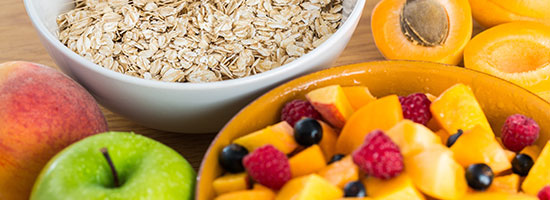
Do you suffer from enlarged, painful, bleeding hemorrhoids? Are you looking for suggestions on how to reduce or even eliminate uncomfortable symptoms? Here are three straightforward dietary tips, that when combined with other healthy lifestyle changes, will help treat problematic hemorrhoids and reduce the likelihood of future episodes as well.
Add Fiber To Your Diet
Fiber is an essential part of hemorrhoid prevention and treatment. It helps soften the stool, thereby reducing discomfort and irritation to the anal area when it passes out of the body. Fiber also adds bulk to the stool, speeding up the movement of waste through the digestive tract.
The best sources of fiber are raw fruits and vegetables, nuts, seeds, whole grains, and legumes. Fiber-rich fruits include berries, apples, bananas, oranges, and mangoes. Artichokes, carrots, beets, and broccoli are a few high-fiber vegetables. Pecans, walnuts, sunflower seeds, and popcorn offer a healthy dose of fiber as well. Increase fiber in your diet by eating bran, oatmeal, brown rice, and whole-grain breads and cereals. Finally, legumes like lentils, kidney beans, and pinto beans are other good options.
Drink Plenty of Water
Drinking plenty of water is crucial. Even mild dehydration can cause hard, dry stool and constipation, making hemorrhoids worse. Water softens stool and keeps waste moving through the body. Drinking 64 ounces per day is a great place to start; however, keep in mind that your body may require more or less than this. The best way to determine if your body is properly hydrated is to aim for clear or pale yellow urine, and soft stool.
Consider Fiber Supplements
Even with a healthy, fiber-rich diet, it can be difficult to consume enough fiber to meet the recommended daily amount. Women should be taking in 25 grams per day and men should aim for 38 grams per day. A fiber supplement may be helpful to keep stool soft and promote a regular schedule of moving your bowels. Supplements such as Metamucil and Citrucel are readily available and easy to use. However, it’s important to start with a lower dose and increase slowly to prevent gas, cramping, and bloating. Also, drink plenty of water with fiber supplements to prevent constipation. Finally, be sure to use supplements in addition to a healthy diet, and not as a replacement for one.
Because fiber alters the flow of the digestive tract, it could potentially change the rate in which certain medications are absorbed. If you have any concerns at all, speak with your healthcare provider. They can help you determine what your individual fiber needs are and identify possible medication interactions.
